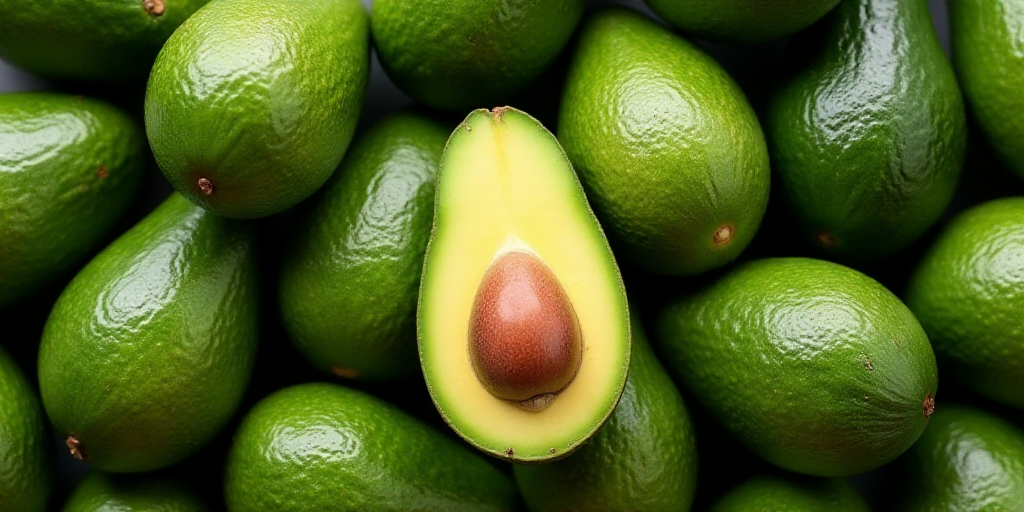Productivity Comparison Between Jalisco and Michoacán
Despite having only 12% of the avocado-growing hectares in Mexico, Jalisco’s productivity per hectare doubles that of Michoacán, according to Saúl Medina Tejeda, president of the Asociación de Productores Exportadores de Aguacate de Jalisco (APEAJAL).
Medina Tejeda explained that Jalisco’s high-productivity avocado orchards are due to the majority being technologically irrigated, while Michoacán’s are mostly rain-fed. In Michoacán, the average production is six to seven tons per hectare, whereas in Jalisco, it ranges from 13 to 14 tons per hectare.
Irrigation Systems and Their Impact
He further elaborated, “70% of Michoacán’s orchards are rain-fed, as has been the tradition, while in Jalisco, it’s the opposite; 80% of our orchards are technologically irrigated, whether through drip, sprinkler, or any other year-round irrigation method.”
Expanding to New Markets
After successfully opening the US market three years ago, APEAJAL’s president mentioned that Jalisco’s avocados now aim to conquer other markets where Michoacán already has a presence, such as Chile, South Korea, and China.
Despite concerns over potential tariffs on Mexican products from the US, avocado producers and exporters in Jalisco trust that the trade agreement will be respected, as 60% of Jalisco’s production is currently shipped to the neighboring country.
Export Figures and Market Reach
According to APEAJAL, Jalisco has 43,000 hectares of avocado cultivation, with 23,000 hectares certified for US exports. The remaining hectares can be exported to markets like Japan, Canada, and the Middle East.
By the end of the 2024-2025 season, Jalisco exported 137,000 tons of avocados, and from January to July of the current year, 56,000 tons have been shipped abroad.
“Mexico accounts for 33% of the global avocado production; in the US, it represents between 60 and 70%. Jalisco plays a crucial role when Michoacán’s black avocado season ends,” Medina emphasized.
Regional Development in Jalisco
Eduardo Ron, the Secretary of Agriculture and Rural Development (Sader), stated that avocado cultivation is a development driver for all regions in Jalisco, with 18 municipalities currently certified for avocado exports.
Ron Ramos added, “We have four more municipalities waiting for the publication in the Federal Register (DOF) and several others pending Senasica’s (National Service for Health, Safety, and Quality in Agriculture) feedback on sanitary matters. Notably, Jalisco’s avocado is the only one in Mexico with Rainforest Alliance certification.”
International Aguacate Congress
To promote avocado production and commercialization through technological innovations that strengthen its global market position, the Ninth Aguacate Congress will take place in Ciudad Guzmán from August 27 to 29.
The event will gather producers, exporters, and specialists from six countries and is expected to attract over 1,500 attendees.
Key Questions and Answers
- What makes Jalisco’s avocado productivity higher than Michoacán’s? Jalisco’s productivity is higher due to its advanced irrigation systems, while Michoacán relies mainly on traditional rain-fed methods.
- What new markets is Jalisco targeting? Jalisco aims to expand its avocado exports to Chile, South Korea, and China, markets where Michoacán already has a presence.
- What percentage of Jalisco’s avocado production goes to the US? Approximately 60% of Jalisco’s avocado production is exported to the United States.
- How many Jalisco municipalities are certified for avocado exports? Currently, 18 municipalities in Jalisco are certified for avocado exports.
- What sets Jalisco’s avocados apart with certifications? Jalisco’s avocados are the only ones in Mexico with Rainforest Alliance certification.






